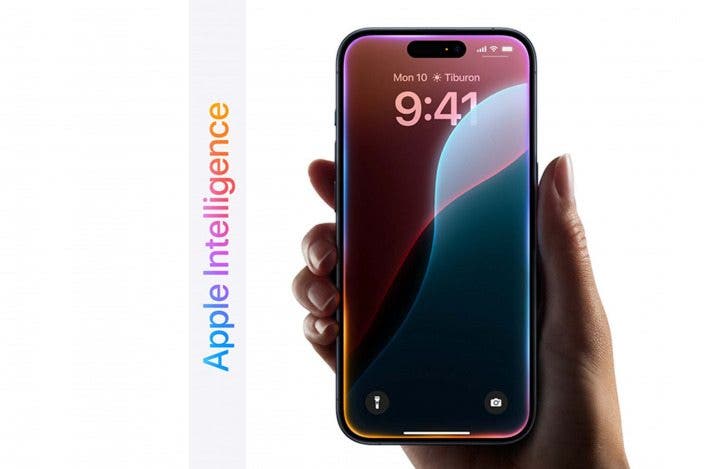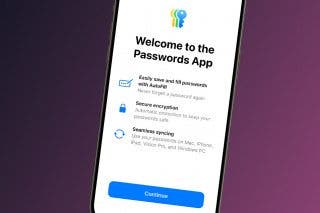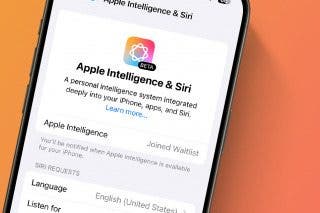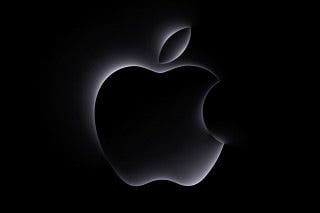Is Apple Intelligence Worth It?


Apple's new artificial intelligence started rolling out its first features with the release of iOS 18 on September 16, and most of them are now available on compatible iPhone models. Apple's AI-powered features are collectively called Apple Intelligence, and they promise to super-power Siri, generate images from text prompts, rewrite your emails in different tones, summarize web pages or emails, and much more. However, these features rely on the neural engine hardware built into the phone, and only the very latest generations of iPhone will sport neural engines powerful enough to unlock Apple Intelligence. So, is it worth an upgrade?
What Is Apple Intelligence?
The name is a little hard to pin down. Unlike its competitor, ChatGPT, Apple Intelligence is not to be found in one specific app or website, and it's not even something you can call up to ask a question. Instead, it is a suite of different capabilities relying on the same underlying AI technology and infrastructure. But what does Apple Intelligence do?
The technology of Apple Intelligence allows for diverse feature improvements. With Apple Intelligence, you can select a section of text and have it summarized or rewritten in a different style or tone of voice, or you can generate a new, unique emoji based on a text prompt. Possibly, its most exciting feature is a more powerful Siri that can better understand your questions and give context-aware answers. Apple Intelligence can also show you summaries of your emails and text messages (instead of just the first few words), transcribe phone calls, help your phone recognize the context and subject of photos for easier image searching, and more. All of these features are Apple Intelligence, even though they are found in different apps and use different menus and interfaces.
The guts of Apple Intelligence are the neural engine hardware built into Apple's processors, which can analyze and generate text and images. But when a task requires more processing power than your device can provide, Apple Intelligence will reach out to Apple's custom-built servers, engineered to do AI tasks in the cloud while preserving your privacy, which will process the request without retaining any data.
Only the Most Recent Phones
Apple Intelligence features will be available on any Mac or iPad running an M-series processor, but if you want them on an iPhone, you need an iPhone 15 Pro, iPhone 15 Pro Max, or any one of the brand new series 16 iPhones, including the new budget iPhone 16e. Apple changed up its normal hardware upgrade process, giving the base model iPhone the same generation of Bionic processor, the A18 Bionic, as the Pro models (the 16 Pros have the A18 Pro chip), presumably to make sure it could keep up with Apple Intelligence. The newest budget model, the iPhone 16e, was released in the spring of 2025 and has an A18 chip with a 4-core GPU, making it capable of running Apple Intelligence.
Privacy, Security & Other Concerns
Apple Intelligence is a similar technology to ChatGPT, Google Bard, and other AI systems that have taken off in the past two years. These are generative artificial intelligence, also known as large language model artificial intelligence. These systems consist of a program (called a model), that is “trained” by feeding it vast databases of human language and images, then asking the model to generate outputs that look like the human language and images in the database. It tries and fails, compares its results with what's in the database, adjusts its algorithms, and then tries again until it can consistently produce results that look like they belong in the database.
Once trained, a model can summarize the content of an image or do the opposite and generate an image from a text description. It can rewrite or recontextualize text, and answer questions by amalgamating an averaged answer based on the contents of the database.
While AI systems are powerful, privacy and security experts have raised numerous concerns regarding their privacy, reliability, ethics, and their outsized environmental impact, even as artists, writers, and educators are worried about the acceleration of plagiarism and the overall social impact, and social scientists raise alarms about their systematic discrimination.
These concerns are serious and substantial. Based on the announcements and previews, Apple seems to be attempting to address the concerns in different ways. The company addresses privacy and security concerns with Private Cloud Compute, where the servers that process your AI requests are built by Apple, are cryptographically certified at the hardware level, and retain no knowledge of past requests. They address the energy costs by claiming that data centers for Private Cloud Compute will run on 100% renewable energy. In what may be an attempt to address the plagiarism concerns, Apple Intelligence doesn't generate text; it can only rewrite text you have already written. Similarly, regarding the plagiarism concerns of artists, the images it generates from text prompts all seem to match a specific style easily identified as a product of Apple Intelligence.
But many concerns remain unanswered, such as where Apple acquired its training data, how it retains the on-device context that Siri uses to understand your questions, and how to train students to detect when Siri provides hallucinated answers to their questions. Though Apple Intelligence does not write your emails, it does generate summaries, and those summaries may not always cite their references or supply credit where it is due. If you enjoy learning about your iPhone and Apple Intelligence features, sign up for our free Tip of the Day newletter.
Should You Buy a New Phone Just for Apple Intelligence?
Apple Intelligence includes many exciting features that have been engineered to address many, though not all, of the concerns that plague AI. We're excited to try out Apple's Intelligence! If there is one AI to try, it is probably this one. Is Apple Intelligence out yet? Yes! While not all of the Apple Intelligence features arrived with the release of the iPhone 16 series, most are currently ready to use. Unfortunately, the smarter Siri upgrade was delayed and may not be out until closer to the release of the iPhone 17 series next year or even 2027.
If Apple Intelligence is the only reason you're thinking about upgrading, then you may as well wait until the iPhone 17 series next year. This will give Apple time to fully release the new AI-based features, and work out more of the bugs in Apple Intelligence.

Cullen Thomas
Cullen Thomas is a senior instructor at iPhone Life. For ten years as faculty at Maharishi University, Cullen taught subjects ranging from camera and audio hardware to game design. Cullen applies a passion for gadgetry to answer questions about iPhones, iPads, Macs, and Apple cloud services; to teach live classes; and to specialize in the privacy and security aspects of the Apple ecosystem. Cullen has dual degrees in Media & Communications and Literature, and a Masters degree from the David Lynch Graduate School of Cinematic Arts.
Offline, Cullen designs videogames with Thought Spike Games, writes fiction, and studies new nerdery.
Mastodon: @CullenWritesTech@infosec.exchange
Email: cullen@iphonelife.com
Signal: @cullen.99


 Amy Spitzfaden Both
Amy Spitzfaden Both
 Rhett Intriago
Rhett Intriago

 Susan Misuraca
Susan Misuraca
 Nicholas Naioti
Nicholas Naioti
 Olena Kagui
Olena Kagui
 Rachel Needell
Rachel Needell

 Leanne Hays
Leanne Hays


 Hal Goldstein
Hal Goldstein


